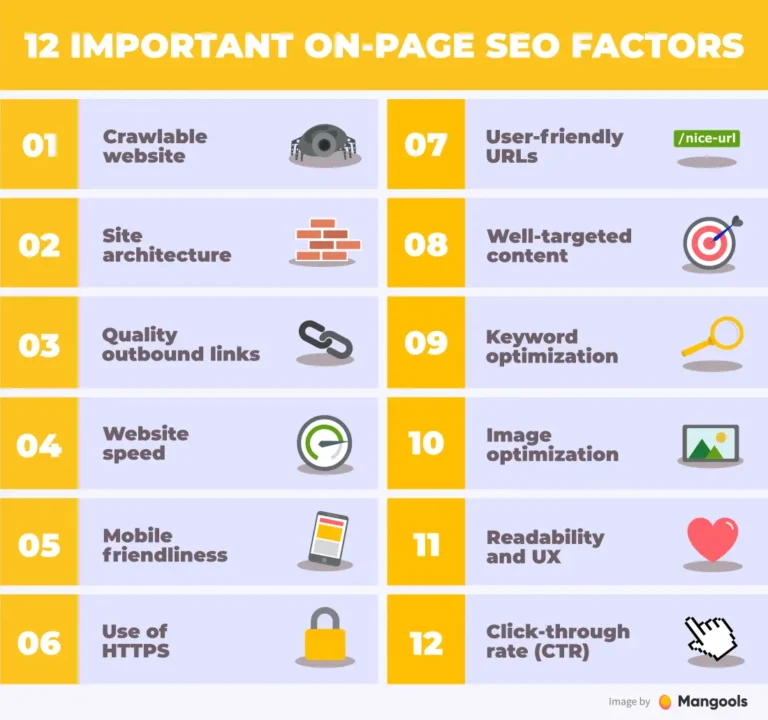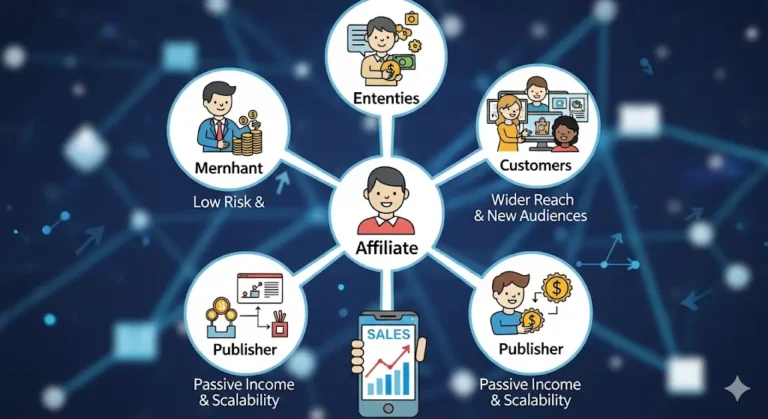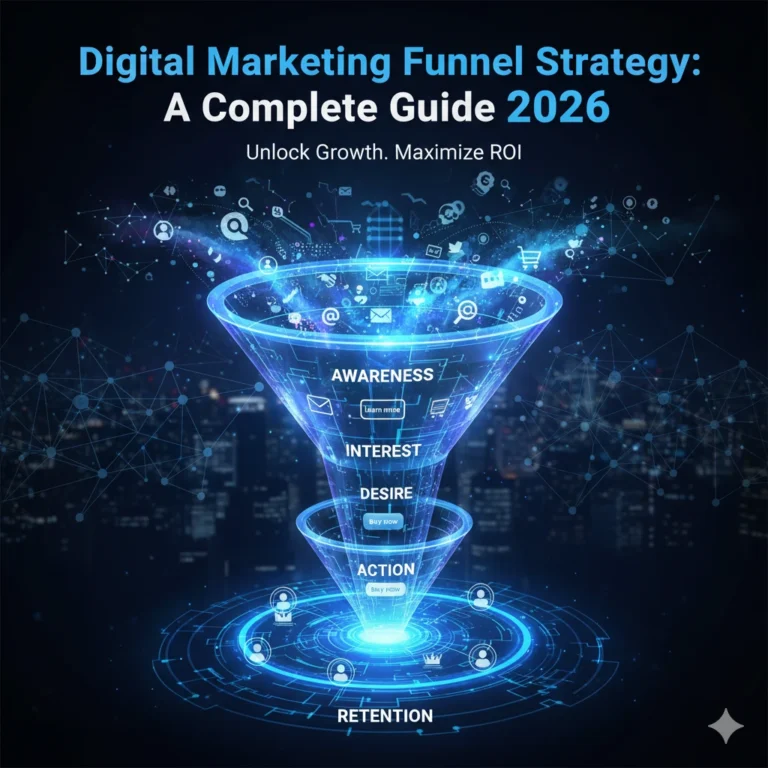Local SEO: 11 Easy Complete Guide to Boost Rankings & Business
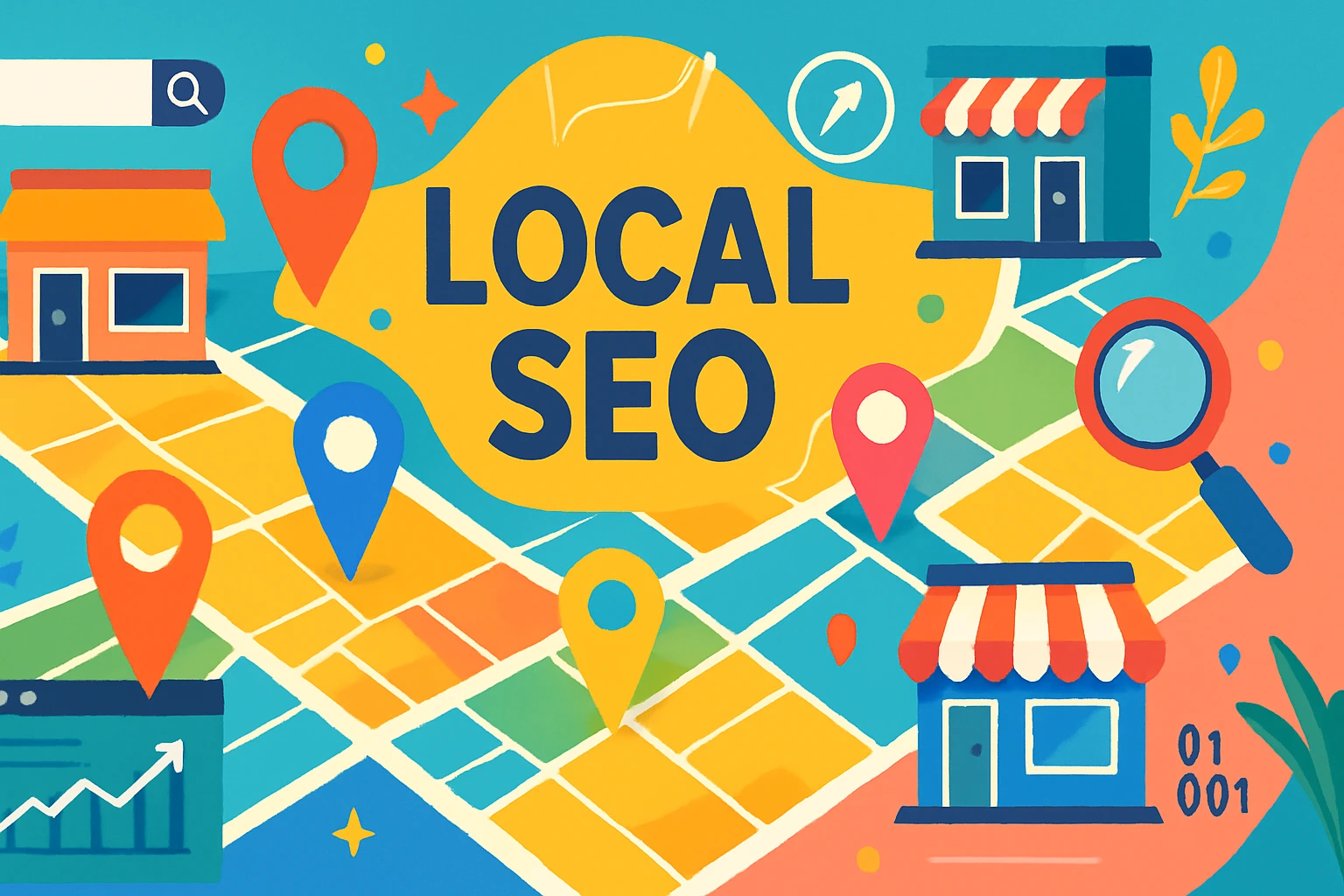
If you’re running a business and want more local customers, Local SEO is the key. In simple words, Local SEO helps businesses rank higher in local search results, attract nearby customers, and improve visibility on Google Maps. This guide covers everything about what is local SEO, local SEO services, local SEO ranking factors, local SEO checklist, and best local SEO tools to help your business grow.
What is Local SEO?
Local SEO means optimizing your online presence so your business shows up when people nearby search for your products or services. For example, if someone types “best bakery near me” or “plumber in Hyderabad”, Google displays local businesses. This process is powered by Google My Business local SEO and local ranking signals.
Local SEO is different from traditional SEO because it focuses on location-based intent. That’s why every local business, from restaurants to salons, should use it.
Why Local SEO Services are Important
- 46% of all Google searches have local intent.
- 76% of mobile searches for something nearby result in a visit within 24 hours.
- Businesses that appear in Google’s Local Pack receive more clicks and calls.
This shows why investing in local SEO services is no longer optional – it’s a necessity for businesses that want to dominate their city or region.
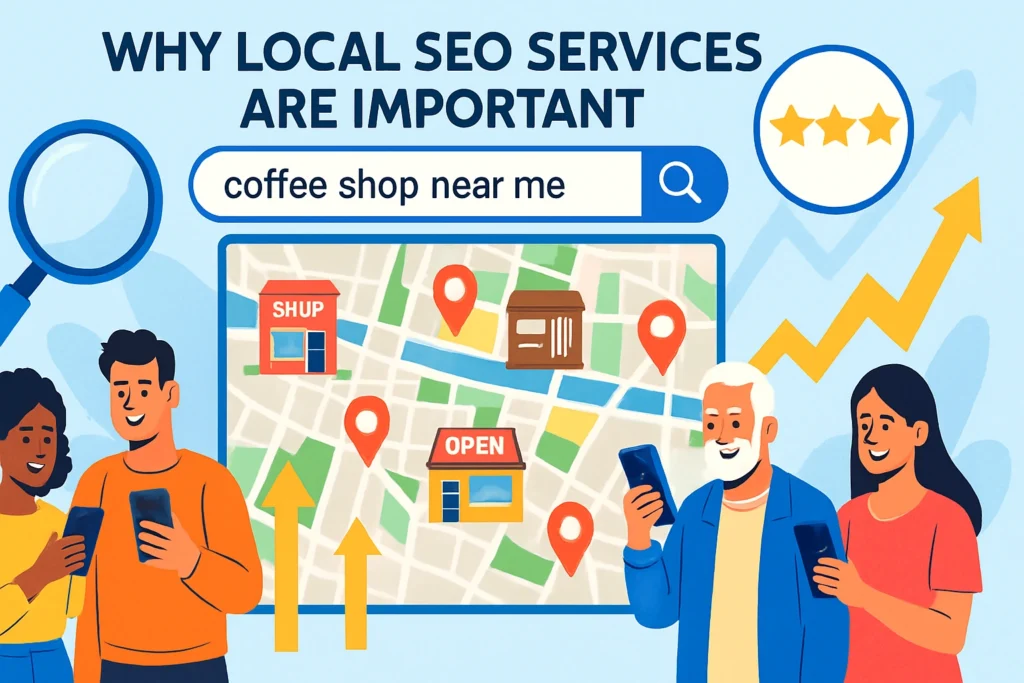
Local SEO Ranking Factors
Google uses several signals to decide local rankings. The main local SEO ranking factors are:
- Google Business Profile (GBP) Optimization – Complete business details, photos, and regular updates.
- NAP Consistency – Your Name, Address, and Phone Number must be the same across all platforms.
- Local Backlinks – Quality backlinks from local blogs, news sites, or directories.
- Reviews & Ratings – Positive reviews improve credibility and ranking.
- On-Page SEO – Location-based keywords in titles, meta tags, and content.
- Citations – Business listings on directories like Yelp, Justdial, and Yellow Pages.
- Behavioral Signals – Clicks, calls, and check-ins signal trust.
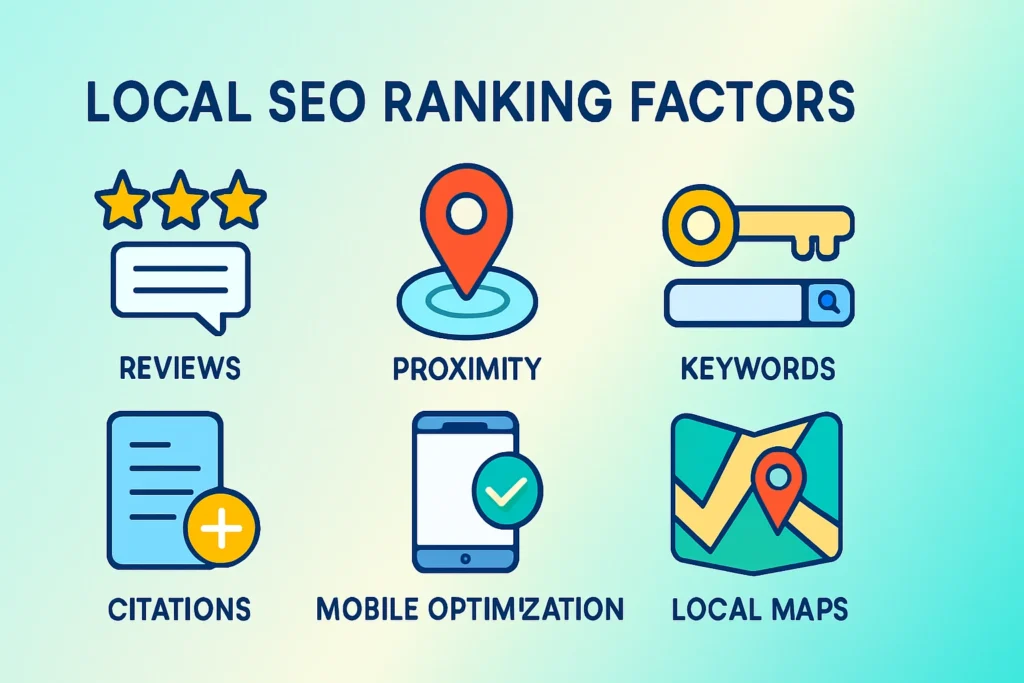
Local SEO Checklist for Businesses
Here’s a simple local SEO checklist every business should follow:
- Claim & verify Google My Business.
- Add accurate business information (NAP).
- Use keywords with city/location in titles and meta.
- Create localized content (blogs, FAQs, service pages).
- Build local SEO backlinks from trusted sites.
- Get customer reviews and respond to them.
- Optimize for mobile and voice search.
- Track results using local SEO tools like SEMrush, Moz, or BrightLocal.
Local SEO Backlinks and Why They Matter
Backlinks are a strong ranking factor in SEO, and Local SEO backlinks help even more. For example, if a Hyderabad food blogger links to your restaurant website, Google sees your business as relevant in that area. Focus on building links from:
- Local newspapers
- City-based directories
- Community websites
Local bloggers or influencers
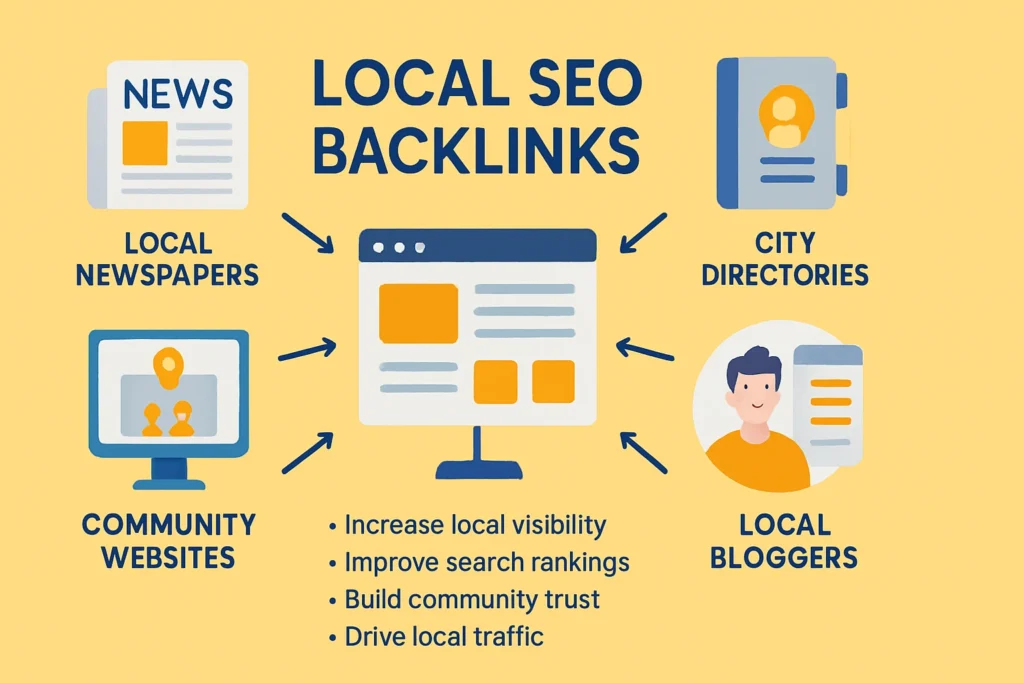
Google My Business Local SEO – The Game Changer
One of the most powerful tools for local search is Google My Business (GMB), now known as Google Business Profile (GBP). It allows you to:
- Show up in Google Maps.
- Share updates, photos, and offers.
- Collect and respond to reviews.
- Display business hours and services.
Businesses with an optimized GMB profile are more likely to rank in the Local Pack – the top 3 business results shown in local searches.
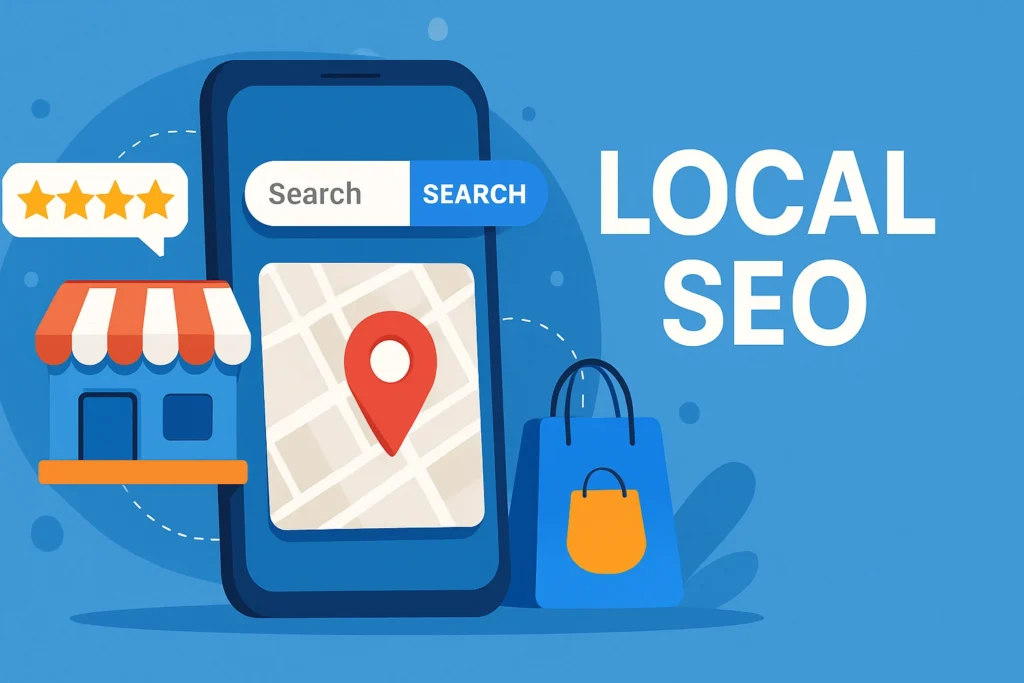
Best Local SEO Tools You Should Use
To simplify local optimization, use these best local SEO tools:
- Google Business Profile Manager – Free tool to manage listings.
- BrightLocal – Track rankings, citations, and reviews.
- Moz Local – Automates listing distribution.
- SEMrush Local SEO Toolkit – Audit and track local visibility.
- Ahrefs – Build and monitor local SEO backlinks.
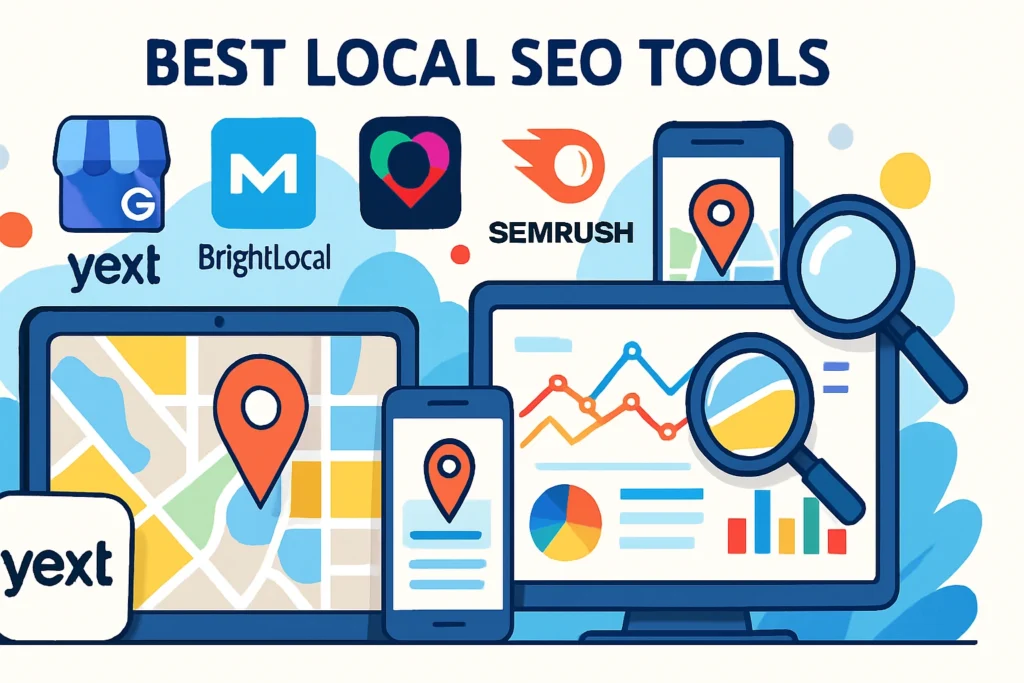
Role of AI in Local SEO
AI is transforming how search engines work. Local SEO AI tools analyze user intent, automate reporting, and even help in generating personalized content. AI chatbots can also boost local engagement by answering customer queries instantly.
How to Improve Local SEO Step by Step
- Audit your current website and listings.
- Optimize titles and meta with location-based keywords.
- Add schema markup for local SEO.
- Build local SEO backlinks.
- Encourage customer reviews.
- Track performance using analytics.
Local SEO Course – Learn & Master Skills
If you’re new and want to master it, joining a Local SEO course is a great idea. Courses cover everything from keyword research, technical setup, GMB optimization, and backlink strategies. Learning Local SEO helps freelancers, digital marketers, and business owners alike.
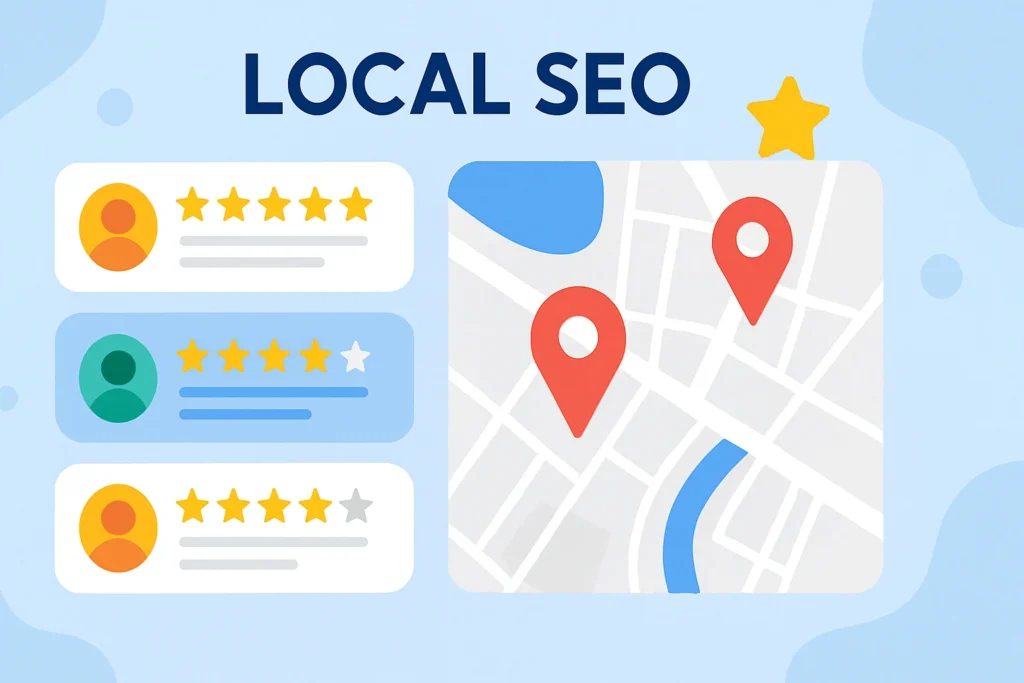
Future of Local SEO
With mobile searches and AI-powered personalization growing, the future of Local SEO will be more voice-based and AI-driven. Businesses that adopt it early will stay ahead of the competition.
FAQS
Lorem ipsum dolor sit amet, consectetur adipiscing elit. Ut elit tellus, luctus nec ullamcorper mattis, pulvinar dapibus leo.
Q1. What is Local SEO and why is it important?
Local SEO (Search Engine Optimization) is the process of optimizing your online presence to attract more business from relevant local searches. It’s important because it helps small businesses, shops, and service providers appear in local search results and on Google Maps, bringing in nearby customers who are ready to buy.
Q2. How is Local SEO different from traditional SEO?
Traditional SEO focuses on improving a website’s visibility on a national or global level, while Local SEO targets location-based searches. For example, ranking for “best bakery near me” requires local optimization, whereas “how to bake a cake” is more about general SEO.
Q3. What are the most important factors for Local SEO ranking?
Google Business Profile (formerly Google My Business) optimization
Local keywords in content
Online reviews and ratings
NAP (Name, Address, Phone) consistency
Local backlinks and citations
Q4. How can I optimize my Google Business Profile for Local SEO?
Complete your profile with accurate details
Add high-quality photos of your business
Post regular updates or offers
Collect and respond to customer reviews
Keep your business hours updated
Q5. Do online reviews really affect Local SEO rankings?
Yes, reviews play a big role in Local SEO. Positive reviews build trust, influence potential customers, and also signal to Google that your business is credible and active in the local community.
Q6. Can Local SEO help small businesses compete with big brands?
Absolutely! Local SEO levels the playing field by allowing small businesses to appear in local search results. A well-optimized local strategy helps you reach customers in your area, even if larger brands dominate national search rankings.
Q7. How long does it take to see results from Local SEO?
Typically, it takes 3–6 months to see noticeable improvements, depending on your competition, industry, and optimization efforts. Consistency and ongoing updates are key for long-term success.
Q8. Is Local SEO only useful for physical stores?
Not at all. Service-based businesses (plumbers, consultants, lawyers, etc.) can benefit greatly from Local SEO. Even if you don’t have a physical store, you can target your service areas to attract local clients
Q9. What are some common mistakes businesses make with Local SEO?
Inconsistent NAP details across directories
Neglecting reviews or not responding to them
Overlooking mobile optimization
Stuffing keywords unnaturally
Ignoring Google Business Profile updates
Q10. How can I measure the success of my Local SEO efforts?
Improved rankings on Google Maps and local searches
Increased calls, visits, or directions requests from Google Business Profile
Higher website traffic from local searches
Growth in positive customer reviews

